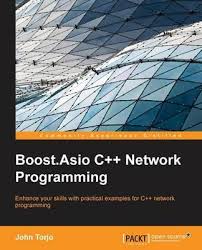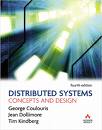Olivier Langlois's blog
Categories: Book reviews, C++, Code Optimization, Compiler, Fractal, Linux/UNIX, Multithreading, Software security, TCP/IP, Web, Windows programming
01/03/16
C++ in the city in 2016 (0x07E0)
This is an editorial that I sent out to my LinkedIn C++ group members:
https://www.linkedin.com/groups/2035024/2035024-6089655206256144384
I'm discussing the retirement of of one of my favorite C++ books author: Scott Meyers
I am remembering the context when Scott Meyers books were hot and just out of the printers in the 90s. What other books of the same era that did pass as well the test of time.
I'm telling what he was meaning for me as a C++ developer and I am inviting people to discuss the impact and the causes of Mr. Meyers retirement.
Go read about it. It is very good!
04/02/13
Boost.Asio C++ Network Programming
I have been offered by the publisher to read and review this book. I was enthousiast as network programming is really something I like and I have heard about Boost.Asio usage in some projects without really having taken the opportunity to check out myself what Boost.Asio really was.
The outcome of having read it is that I was left with a lot more unanswered questions than I have received answers. It is a very short book probably of the style 'hands on' 'direct to the point' type of book which I guess has merits so someone can start reading it and hack something very fast. However, in my opinion, this is overdone making the book a bad choice for learning network programming.
My first unanswered question I had when I picked up the book is Why should I use Boost.Asio and what are its benefits over other existing frameworks? Of course, I know the answer that you can find also in the excellent book Network programming in C++ plus the fact that Boost.Asio is fully integrated with STL but the explanation is totally missing from the book.
Explanation between synchronous and asynchronous is very simplistic and can be resume as 'async is more complex than sync but eventually you will prefer async for performance reasons'. It got me a little confused for knowing that the *nix socket API and the Winsock API you can do:
blocking IO
Nonblocking IO or
async IO
which are three different ways of performing IO. I am guessing that what is really done with Boost.Asio is non blocking IO which is close to real async IO and much more common place but nowhere in the book we take the time to really explain what Boost.Asio is really doing.
Code examples are ok I guess so the author can make his point but I spotted a couple less than perfect code which I think is hurting the book credibility. I know this is a harsh judgement but for a book that aims to teach people how to program you have to be examplar as what you teach will be replicated by your readers. I am expecting perfection from a book examples. The type of code that you stare at for some time without being able to figure out how you could improve it. That is the type of quality that you'll get from a book written by Stroustrup or Stevens.
Here are two examples of what I mean:
if ( std::find(c.buff, c.buff + c.already_read, '\n') < c.buff + c.already_read) {
int pos = std::find(c.buff, c.buff + c.already_read, '\n') - c.buff;
1. It is inefficient to call twice std::find(). Imagine that '\n' is the last character in a 2GB array!
2. comparing iterators with the operator '<' works because in this case the container happens to be a POD array but IMO this is bad style to use STL algorithm in a way that will not works on all containers (ie std::list) when using the more common operator != would achieve the same result.
synchronous server code:
void handle_clients() {
while(true)
for (int i = 0; i < clients.size(); ++i)
if ( clients[i].sock.available() ) on_read(clients[i]);
}
This works but polling sockets like crazy and sucking 100% of the processor is not the way to write a server that use synchronous mode. I understand that the book did not aim to be a network programming bible like a Stevens but I would have liked some network theory background. Things such as the different possible server topologies and their benefits drawbacks of each. A very small TCP primer. How TCP connections are established from a client? from a server? I know all that but I tried to have some empathy for the young reader who haven't been exposed to this basic knowledge and since these basics are totally absent from the book, it will be even harder for him to make sense out of the book. This is the first edition so hopefully it will eventually improved.
To conclude, the book has some problems but if you can get a cheap copy it might serve as a very fast introduction to Boost.Asio and get you exposed to the API.
04/05/10
Cryptography Engineering
I just started to read this book which is an updated version of Practical Cryptography. This book is coauthored by Bruce Schneier. From what I have seen so far. It looks like a very nice introduction to cryptography that is very accessible. For more in depth coverage on cryptography, I would recommend looking at Applied cryptography. I will probably have more to say about the book when I am done reading it.
03/28/10
Distributed Systems: Concepts and Design (4th Edition)
This book wants to be the encyclopedia of networking science. It is very complete and covers a lot of topics. In my opinion, this is not very useful because you either read a chapter covering a topic that you already totally master and hence learn nothing or the topic is totally new and the book barely scratches the surface of the topic letting many questions unanswered.
03/25/10
Cascading Style Sheet: The Definitive Guide
It is a very complete guide. It did allow me to understand my own blog CSS code and I have been able to fix an alignment problem related to margin values in <div> tag style property. Since my banner was displaying correctly in IE (incorrect behavior) but was misaligned in Firefox, a full understanding of CSS was necessary to figure out what was wrong and this book helped a lot. This small experience did allow me to appreciate the type of challenges HTML professionals are confronted to daily to support a wide range of browsers.
My only complain, and maybe it is because HTML editing is not my thing, is that while I was reading the book, I did not felt the author has succeeded in transmitting his passion for the topic. Instead reading this book felt as exciting as reading a dictionary for the most part. For this reason, I would not recommend it for learning CSS but if you need a good reference document then it might do fine.
:: Next Page >>
Olivier Langlois's blog
I want you to find in this blog informations about C++ programming that I had a hard time to find in the first place on the web.
| Next >
| Sun | Mon | Tue | Wed | Thu | Fri | Sat |
|---|---|---|---|---|---|---|
| << < | > >> | |||||
| 1 | 2 | 3 | 4 | 5 | 6 | 7 |
| 8 | 9 | 10 | 11 | 12 | 13 | 14 |
| 15 | 16 | 17 | 18 | 19 | 20 | 21 |
| 22 | 23 | 24 | 25 | 26 | 27 | 28 |
| 29 | 30 | 31 | ||||
Search

Categories
Olivier Langlois's blog
- AAC (2)
- Book reviews (12)
- C++ (24)
- Code Optimization (4)
- Compiler (3)
- Fractal (2)
- Linux/UNIX (3)
- Multithreading (3)
- Software security (7)
- TCP/IP (8)
- Web (1)
- Windows programming (19)
- C++ (28)
- tutorials (4)
- General (10)
- Hardware reviews (2)
- Linux (12)
- Recommended books (4)
- C++ (20)
- Code Optimization (2)
- Compiler (3)
- Fractal (2)
- Linux/UNIX (1)
- Multithreading (2)
- Rare out of print (3)
- Software security (5)
- TCP/IP (7)
- Windows programming (16)
- Software reviews (0)
- TCP/IP (8)
- Video games (4)
Archives
- January 2016 (1)
- September 2015 (1)
- July 2015 (1)
- June 2015 (1)
- May 2015 (1)
- December 2013 (3)
- September 2013 (1)
- May 2013 (8)
- April 2013 (1)
- December 2010 (1)
- August 2010 (1)
- June 2010 (1)
- More...
Misc
 XML Feeds
XML Feeds
What is RSS?
Who's Online?
- Guest Users: 4
 BOOKS i'm reading
BOOKS i'm reading







